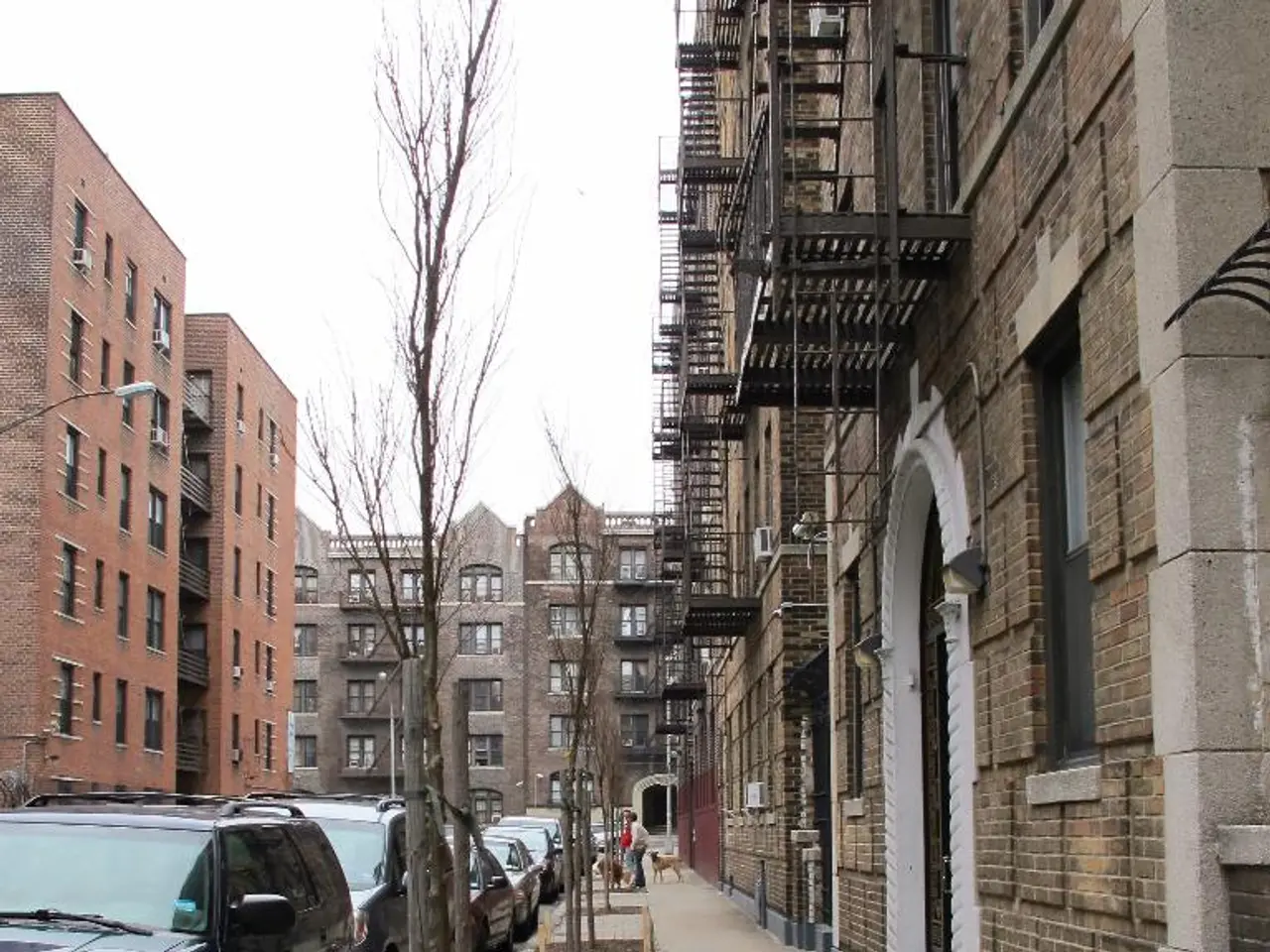Construction projects may see an increase in pace with the emergence of Tenants' Union 2.0, a new development that could potentially drive progress. - Construction speed acceleration sought by Housing Alliance 2.0 in new building projects
Berlin, Germany - The Berlin Housing Alliance 2.0, a collaborative initiative involving the city government, housing companies, and other stakeholders, is aiming to increase the pace of new housing construction to tackle the city's significant housing shortage.
According to Berlin's governing mayor, Kai Wegner, the target is to build around 20,000 new apartments annually. However, recent debates and reports have indicated that while progress has been made in some areas, the challenge to consistently meet this target persists due to factors such as rising construction costs, labor shortages in construction, lengthy permitting and approval processes, and the need for more innovative housing models and financing mechanisms.
The Senate has completed approximately 50,000 apartments in the past three years, achieving 83% of the originally targeted 60,000. Despite this, the Berlin Housing Alliance 2.0 is determined to continue its efforts to meet the housing demand.
The alliance, initially launched in June 2022, has faced criticism and non-adherence to agreements, leading to its transformation into a "coalition alliance" without individual companies from the real estate industry. The meeting of the alliance, originally scheduled for mid-May, was postponed at short notice "due to scheduling reasons".
The Greens, a prominent political party in Berlin, have been vocal in their criticisms of the alliance. Katrin Schmidberger, the Greens' spokesperson on housing policy, has called for an end to the "cuddly course towards profit-driven corporations" and has accused the CDU and SPD of securing the profits of the real estate industry, blocking the citizen's initiative for expropriation and tenant protection.
The Greens have proposed solutions such as a housing cadastre, market exclusion for repeated violations, and a central state housing office to take over control and enforcement. They have also criticized the Berlin Housing Alliance for being ineffective after more than three years.
Meanwhile, the Greens' demands for "real tenant protection" have been met with criticism from Wegner, who has accused them of PR stunts. The Berlin Urban Development Plan aims to promote the development of new urban quarters to address the housing shortage.
Robert Momberg, CEO of the East German Construction Industry Association, emphasizes the need for reliable funding promises, swift approval procedures, and a consistent strategy for cost reduction in housing construction to address the housing shortage. Maren Kern from the BBU association of Berlin-Brandenburg housing companies sees the achievement of "Housing Alliance 2.0" with the new agreement.
As the city continues to grapple with its housing shortage, the Berlin Housing Alliance 2.0 remains committed to its goals and the search for effective solutions to this pressing issue. For the latest updates on the alliance and its activities, residents are encouraged to follow official government publications and housing ministry announcements.
- The employment policy of the city government and the Berlin Housing Alliance 2.0 must address the labor shortages in construction to meet their targets for new housing construction.
- Finance policies need to be developed to provide reliable funding for the housing industry, as suggested by Robert Momberg, CEO of the East German Construction Industry Association.
- The employment policy should focus on reducing costs in housing construction, as advocated by Momberg and the Berlin Housing Alliance.
- In the realm of policy-and-legislation and politics, there's a call for more innovative housing models and financing mechanisms, as noted in the general news and the Greens' criticisms.
- The employment policy should also aim to streamline permitting and approval processes, which is a contributing factor to the persistent challenge in consistently meeting the housing targets, as highlighted by various sources in recent debates and reports.




